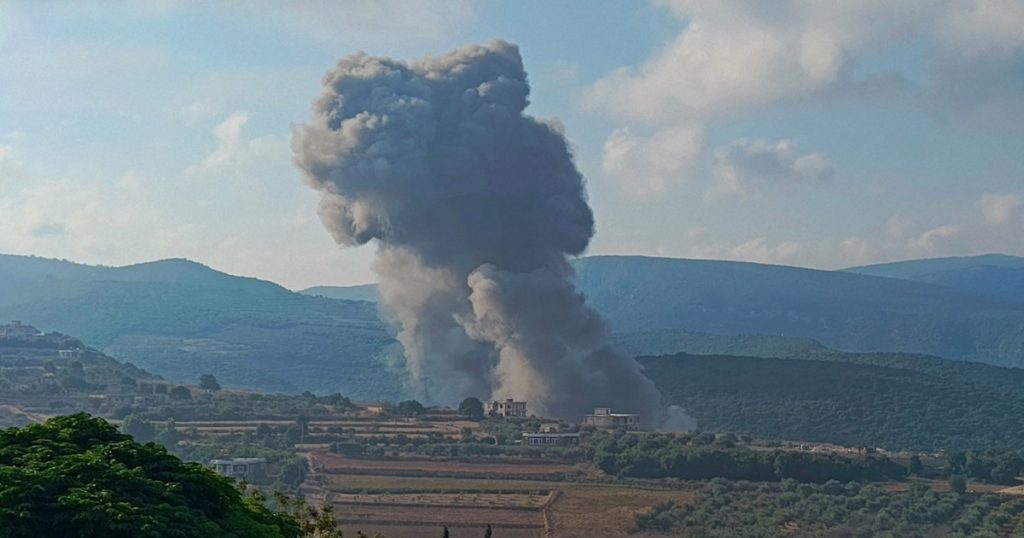An Israeli military leader, Lt. Col. Nadav Shoshani, stated today that Israel had successfully prevented a planned Hezbollah attack in retaliation for the assassination of a top Hezbollah commander last month. The attack involved Lebanon-based Hezbollah militants preparing to launch a rocket attack against northern Israel using thousands of rocket launchers. Israel’s preemptive strike involved 100 aircraft targeting thousands of rocket launchers in 40 launch areas. Despite this, Hezbollah managed to launch hundreds of rockets and UAVs towards northern Israel, including areas with homes and civilians.
In his briefing, Shoshani emphasized that Israel’s actions had thwarted a significant part of the planned attack, which was part of a larger operation. Hezbollah claimed to have hit 11 military targets in response, but Israel viewed the attack as a serious threat to its civilian population. Shoshani reiterated Israel’s stance that it would not tolerate such attacks on its civilians and reserved the right to defend its people. The military leader stated that it was unclear if Hezbollah had completed its planned attack, with ongoing assessments being conducted.
The Israeli military’s successful prevention of the Hezbollah attack highlights the ongoing tensions and conflict between the two sides. Israel’s use of preemptive strikes to neutralize threats demonstrates its commitment to safeguarding its population, while Hezbollah’s continued attacks reflect its resolve to retaliate against perceived aggression. The situation underscores the volatile nature of the region and the risks posed by militant groups like Hezbollah, which has a history of engaging in armed conflict with Israel.
The Hezbollah attack and Israel’s response serve as a reminder of the complex geopolitical dynamics in the Middle East, with multiple actors vying for power and influence. Israel’s military capabilities and strategic planning enabled it to counter the threat posed by Hezbollah effectively, but the situation remains fluid, with ongoing assessments needed to gauge the extent of the threat. The Israeli military’s actions are likely to have broader implications for regional security and stability, as both sides navigate a delicate balance of power and deterrence.
As the situation continues to unfold, it is crucial for international observers and stakeholders to monitor developments closely and work towards de-escalation and conflict resolution. The risk of further escalation and violence remains high, underscoring the need for diplomatic efforts to prevent a larger confrontation. Both Israel and Hezbollah must exercise restraint and show willingness to engage in dialogue to address underlying grievances and prevent future conflict. The events serve as a stark reminder of the ongoing challenges in the region and the need for concerted efforts to achieve lasting peace and security.


